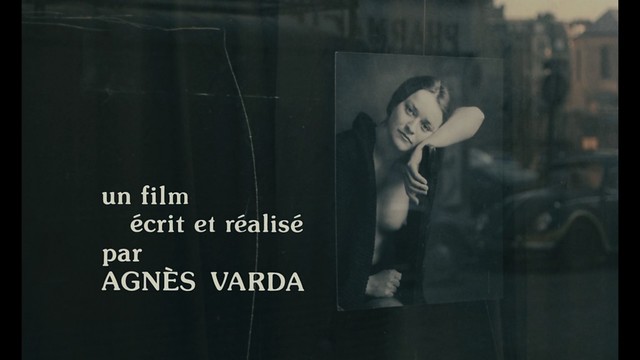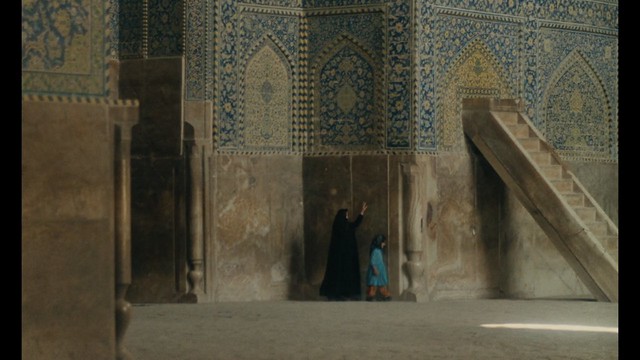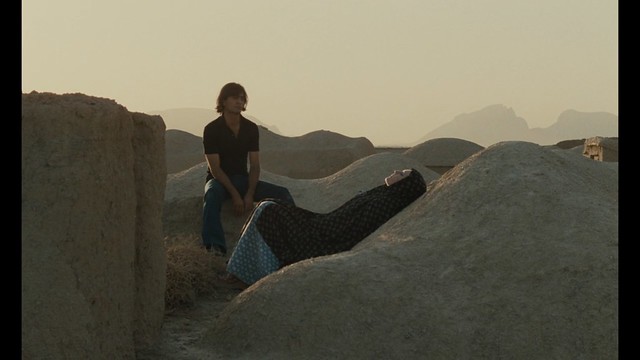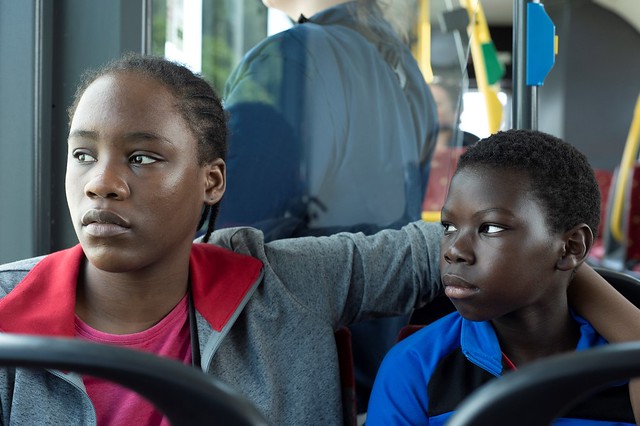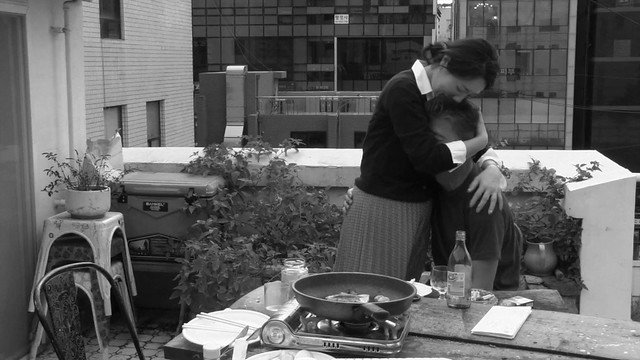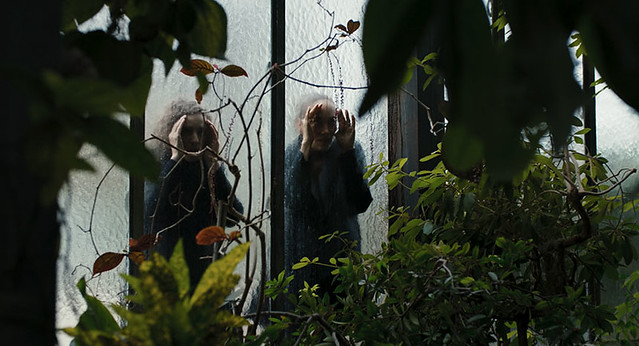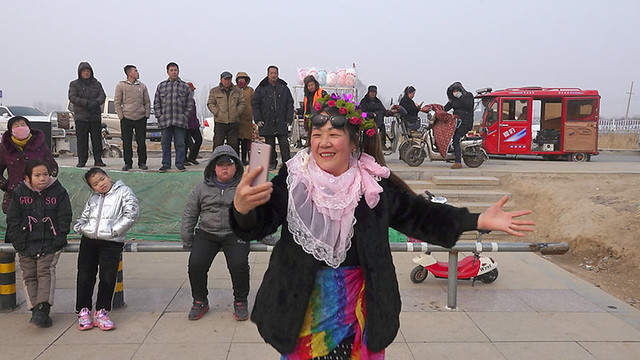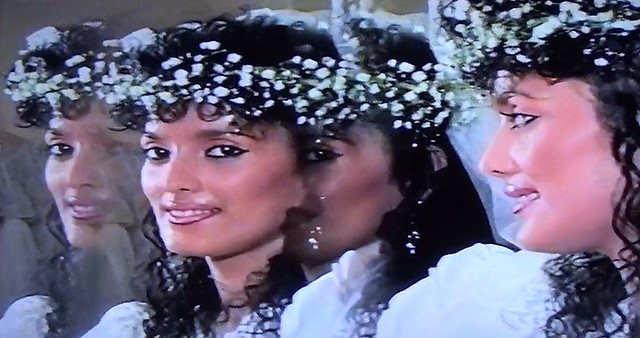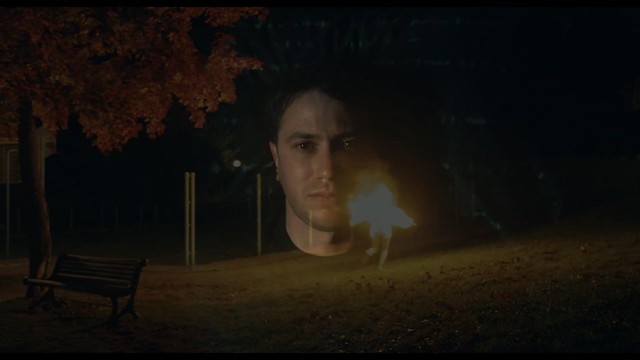
One can argue that human hands represent progress, creativity, guidance, assistance, also destruction and violence. It is then no surprise that hands are a recurring motif in the works of Jean-Luc Godard, one of the key figures of French New Wave, championed the Auteur Theory and who, for the last six decades, labored over making connections between art and life. The connection between the act of creating and the presence of hands has always been present in Godard’s filmography. They represent both a sole authorial voice and steady companionship in many of his late period films. Alexandre Astruc’s article, The Birth of a New Avant-Garde: La Camera-Stylo, was a basis in defining French New Wave and The Auteur Theory a decade later. In it, Astruc advocates that film directors have the same authorial voice in much the same way that writers would write with a real pen; it was in other words, a call for a new kind of cinema, in which the vision of the ‘author’ – or auteur of the film was central. (Martin 2013). The recurring motif is in many of his 80s and 90s films and most prominently in his epic Histoire(s) du Cinema. What I am trying to suggest here with this article is that not only the act of writing, signifying the authorship is shown but helping hands and companionship, or lack thereof, through hands were presented as early as (if not earlier), in Pierrot le Fou.
Pierrot le Fou was Godard’s tenth feature, shot in Techniscope for widescreen presentation, based on a crime novel Obsession by Lionel White. It is a road movie with a political intrigue, starring Anna Karina and Jean-Paul Belmondo. Godard had established himself as a formidable director by then, having a string of successes after Breathless; A Woman is a Woman, Vivre sa vie, Contempt, Band of Outsiders, etc. No doubt the success was due, in large part, to Karina’s on-screen presence. But their real-life relationship was tumultuous, and their marriage was dissolved after 5 years in 1965, with Pierrot being their first and last post-divorce era collaboration. Things were dicey in France during and after the Algerian War, 1954 - 1962. Even the north African country won its independence from France through armed struggle. Both in France and abroad, OAS, the extreme Right Wing militant group, carried out a series of violent attacks against those who advocated Algerian independence. The Vietnam War was still raging, and national protest was mounting, and all these sentiments would accumulate to May 68’ three years later. American culture and material goods were flooding in. So were sense disillusionment and escapism in rapidly changing society. This climate is all presented in Pierrot.
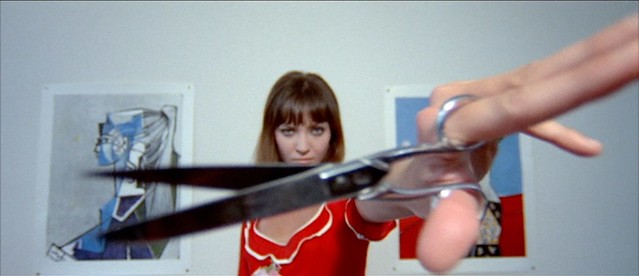
The story concerns Ferdinand (Belmondo) who flees his Parisian bourgeois family life with his former lover and family’s sometime babysitter Marianne (Karina), who has ties with dangerous illegal arms dealers. After finding a corpse with scissors stuck in his neck in Marianne’s apartment, the pair escape armed OAS goons and head for the south in the dead man’s car. After a crime spree and ditching two cars- one burned and the other willfully plunged into the water, they settle themselves on an island for simpler life. But the couple soon find out that they are very different from each other - while Ferdinand/Pierrot buries himself in books and writing, Marianne gets bored and longs for civilization and consumerist comforts. After getting caught by the criminals and tortured, they are separated. They find each other again at a marina in Toulon where Ferdinand works as a cabin boy for a woman who claims to be a Lebanese princess in exile. Marianne convinces him to swindle a briefcase full of cash and promises to run away with him afterwards. But she double crosses him with her real boyfriend gunrunner Fred and sails to an island where Fred has a mansion. Ferdinand/Pierrot pursues them and shoots them down. He then paints his face blue and wraps red and yellow dynamite around his head and blows himself up.

I found a referential detour in Pierrot le Fou in two places. The film shows Ferdinand keeping a journal and constantly writing on graph paper. The act of writing is not new to Godard films; as early as Une Femme Coquette, his first fiction short from 1955 and Karina composing a letter in Vivre sa vie are examples. In Pierrot, it’s his own cursive being written in that journal. Godard’s monumental epic on history and story of cinema, Histoire(s) du Cinema is also ripe with visual motifs of hands. It starts with Godard furiously typing away on his electronic typewriter with that unmistakable screeching of an electronic machine from the 80s. Godard snarls in his throaty voice, “Man’s true condition: to think with hands,” borrowing from the Swiss writer Denis de Rougemont. (Vishnevetsky 2018) The presence of hands particularly stands out in those embodiments of his thoughts, because the essay film is practically a filmed writing process. (Kim 2018)
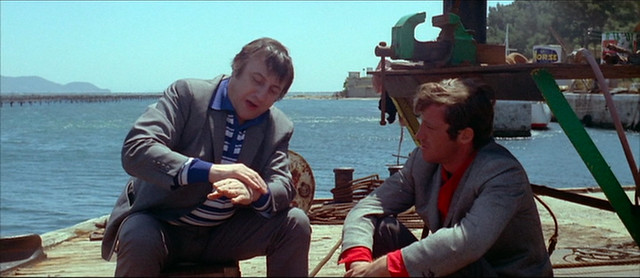
About two-third way into Pierrot, the second detour to hands appears with Raymond Devos, a well-known comedian of that time period, who plays a nostalgic man striking up a conversation with Ferdinand/Pierrot at the dock, a place where betrayed Ferdinand/Pierrot embarks for his revenge. The man proceeds to tell a long and convoluted story, with wild gesticulations, about his lost loves. He says he hears music in his head all the time and keeps asking Ferdinand if he hears it too. “Est-que vous m’aimez…?” He keeps singing the song and we hear the music that is in his head, identifying with the man. He says he was wooing a woman by holding and stroking her hand. The story goes that he asked if she loved him, and she said no. The second woman said yes but he didn’t. The third woman said yes, and he held on to her hand for ten years. “You don’t hear the music? You can come right out and tell me if you think I am crazy!” Ferdinand replies, “You are crazy” and hops on a boat to go to the island to kill the double-crossing Marianne and Fred. There are many comedic moments in Pierrot - at a gas station where the fugitive couple steal Ford Galaxie convertible (Godard’s own) off the pneumatic machine, the couple’s reenactment of Vietnam War at a pier for money where Ferdinand and Marianne play grotesque caricature of an American GI and a literal yellowface Vietcong are some of the prime examples. But five minutes of uncut reverie of Devos’s lovelorn loser routine is such an anomaly and comes out of left field at a pivotal, somber moment. Yet it comfortably fits into Godard’s antics- narrative dissonance that he cultivated both visually and aurally through the edits over the years.
The Devos scene reveals a lot about the fraught relationship between Godard and Karina. “With the end of his marriage to Anna Karina came the end of his quest for a form in which to represent and reinforce it; his new formless way of filmmaking mirrored a frantic state of mind that left no illusion of balance, finish, or grace.” (Brody 2009, 237) When Godard was visiting Serge Rezvani, a musician who contributed two songs that Marianne sings in the film, he was apparently struck by the harmonious relationship Rezvani had with his wife Danielle. “Gazing at the Rezvanis, Godard beheld, to his amazement, an artistic couple that was thriving. Godard’s subsequent contact with the couple, Resvani noted, showed how consumed he was by the problem - by his failure and their success.” (Brody 2009, 242) It makes sense, given Godard's personal, reflexive filmmaking, that he saw himself as the sad philosophizing clown who was betrayed. And underneath Devos’s funny antics hid the longing for the lost love and fantasy of that perfect union of artistic minds and unwavering support that he did not find in Karina. Therefore, through a glass darkly, Pierrot can be seen as a self-damaging, violent, dark fantasy reflecting on his real-life relationship.
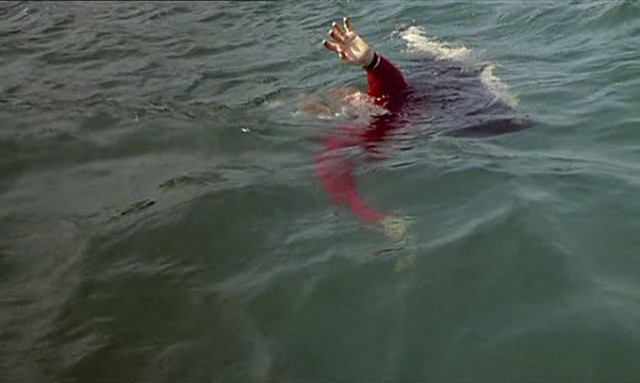



The visual and thematic motif of helping hand dominates Nouvelle Vague, Godard’s renewal of the new wave spirit in 1990. Not only the repeated close-up of hands that are shown in the film but thematically, from helping hands to a bum on the side of the road, pulling a drowning woman out of water, to lending a hand to the world in turmoil, the film is riddled with the metaphor of helping hands. Then there’s the pointing hand of Leonardo da Vinci’s St. John The Baptist in The Image Book, a hand over a naked young woman’s abdomen in Hail Mary, connecting the motifs with creation and divinity. In First Name: Carmen, an open hand covers the TV snow as if embracing the technology. In Film Socialisme, Patti Smith’s outstretched hands, trying to reach or caress the other side of the port, as the European Union tries to reconcile its colonial past. Thinking about all the visual motifs of hands in Godard’s filmography, I would say that this scene in Pierrot is perhaps the beginning where he incorporates the idea of helping hands.

Pierrot le Fou reflects on a lot of social and political upheavals, as well as cultural trends of its time: The extreme right-wing violence, The Vietnam War, widely popular crime novels, rampant consumerism, yearning for simpler life and disillusionment of love. Every film needs to be seen and examined with a proper context. As reference heavy as Godard's films usually are, the visual motif of hands in Pierrot gives a great deal of insights to not only the filmmaker’s creativity and control over his craft, but outside the frame and his life in general. It all makes sense with Ferdinand constantly writing, in Godard’s own cursive and own words. Marianne, whom he thought he was in love with, turns out to be a double-crossing, morally lacking, consumerist manipulator. She’s not the like-minded sister-in-arms toward the artistic struggle. He tells her to “Shut up, I’m writing!” Twenty-five years old when they were filming Pierrot, Karina wanted to be free. Pierrot was the last collaboration between them and in his depressive state, he was able to exercise his dark fantasies one last time.
BIBLIOGRAPHY
Brody, Richard. “Everything is Cinema: The Working Life of Jean-Luc Godard.” Metropolitan Books/Henry Holt & Co., New York, 2009
Kim, Jihoon. “Video, the Cinematic, and the Post-Cinematic: On Jean-Luc Godard’s Histoire(s) du Cinema.” Journal of Film and Video 70.2, Summer 2018
Martin, Sean. “New Waves in Cinema.” Oldcastle Books, 2013
Vishnevetsky, Ignatiy. “The Hand of Jean-Luc Godard.” Mubi Notebook Feature, December 25, 2018
https://mubi.com/notebook/posts/the-hands-of-jean-luc-godard
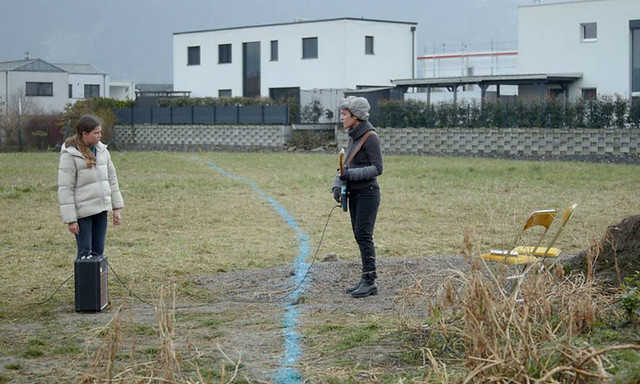 The film starts with a tour de force slo-mo of household items thrown against the wall – the plates, bottles, records, vases, anything that is in the reaches of Margaret (Stéphanie Blanchoud) can hurl at her mom Christina (Valeria Bruni Tedeschi). It’s a total mayhem. The scene ends with Margaret striking Christina in the face and her head hitting the grand piano in the living room.
The film starts with a tour de force slo-mo of household items thrown against the wall – the plates, bottles, records, vases, anything that is in the reaches of Margaret (Stéphanie Blanchoud) can hurl at her mom Christina (Valeria Bruni Tedeschi). It’s a total mayhem. The scene ends with Margaret striking Christina in the face and her head hitting the grand piano in the living room.

